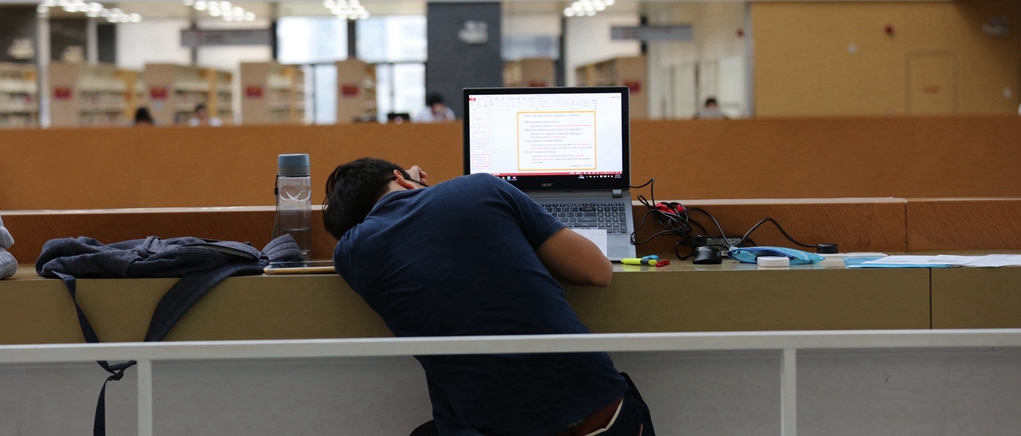Source: My UM
Have you ever had trouble falling asleep and as a result stayed awake in bed all night? Most people attribute insomnia to factors such as sleeping too much during the day or drinking caffeinated drinks like milk tea or coffee, but these are only a few of the many possible reasons why you can’t sleep. Some people don’t even understand why it happens to them. Let’s hear what UM members have to say about this issue.
Insomnia Caused by Study-related Stress
John Wong, a second-year student from the Faculty of Law, thinks that study-related stress is one of the reasons why he cannot fall asleep. ‘Sometimes I have classes until 10:00 or 11:00 at night. And then I will have trouble falling asleep after returning to my residential college,’ says Wong. ‘I also find it hard to fall asleep if I study with my books or computer before going to bed.’ So what does he do when he cannot fall asleep? Wong says that he would drink a glass of milk and listen to some soft music.
Jason Ng, a fourth-year student from the Department of Management and Marketing, also finds study-related stress to be the culprit for his insomnia. Ng sometimes needs to finish two to three reports in one night or study for two to three exams in one day. In these cases he gets very nervous and finds it difficult to fall asleep. Interestingly, studying mathematics helps him fall asleep fast. ‘If I review my maths notes in bed, I call fall asleep within 30 seconds,’ he says.
Fiona Mak, a staff member from the Faculty of Social Sciences, also suffers from insomnia from time to time. ‘I have an active mind and imagination, so there are usually a lot of things going through my mind before I go to bed,’ says Mak. ‘If I can’t fall asleep, I will do some exercise, and that usually does the trick.’
Insomnia Remedies
Lei Seng Hang, a psychological counsellor from the Student Counselling Section, suggests that students should seek help from psychological counsellors if their insomnia problems persist or worsen. ‘A student who developed emotional and insomnia problems because of his poor relationship with his parents came to us for help,’ says Lei. ‘After two weeks of counselling, he felt better and his insomnia disappeared.’
Lei thinks that the main reason for insomnia is an irregular sleep-wake rhythm. He adds that the most effective solution is to develop good sleep habits. ‘Do something to relax your mind 30 minutes before going to bed,’ he says. ‘Also, try not to play with your phone or read in bed. A dark and quiet environment with a moderate temperature can help you fall asleep.’





